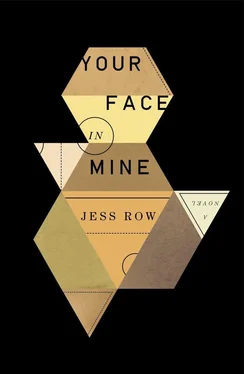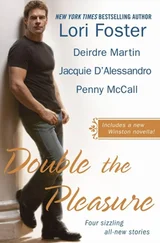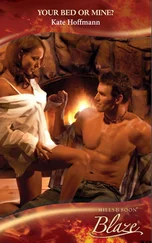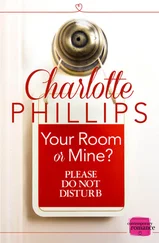Of course it wasn’t Alabama, it wasn’t 1955; there were always a few black kids, a photogenic sprinkling. Tiffany and Wesley Roberts, whose father was Duane Roberts, the Celtics point guard, were one year ahead of me at Passing Brook Elementary. Tiffany was grasshopper-legged, a natural sprinter, an indefatigable four-square champion; Wesley spent recesses under the pines at the far end of the soccer field, trading stickers, buttons, Garbage Pail Kids, baseball cards, Dungeons & Dragons imaginary weapons — whatever currency of the moment.
That was where I came to know him, briefly, in third grade, before his dad was traded to the SuperSonics. He sat hunched over, legs folded, stretching out the hem of his long T-shirt like a table, displaying some treasure — a folder of Reggie Jackson cards from every season, a Don Mattingly rookie card, a mint Topps pack of the 1979 Pirates — and daring the rest of us to make an offer. It wasn’t fun, exactly, being so utterly outmatched, but Wesley knew how to work the margins, trading cards he didn’t need for the best we had to offer. He stared into space, over our shoulders, reciting statistics in a listless, deadpan voice, showing why his cards were always worth more, had more long-term potential; he used words like investment and dividends . Today we might give him a diagnosis — Asperger’s, mild autism, social anxiety disorder — but no one at the time, as far as I can recall, saw anything wrong. Never did anyone in that circle refer to him as black . Creatures of instinct, we didn’t care about the color of his skin, or the content of his character; we cared about his stuff. Only later did it occur to me that that was why he sought us out, and perhaps why he became — I Googled him once, in idle curiosity, a few years ago — a venture capitalist seeding start-ups and then selling them to Microsoft. He’s grown into his looks now; he and his father have a foundation together that runs after-school sports programs in Seattle.
—
This was the life I was raised to have, racially speaking, the life my parents had, post-1973, when they left Back Bay for the suburbs: the life of a Good White Person. I was meant to have a few, select, black friends — peers, confidants, individuals — a number of acquaintances, business associates, secretaries, hygienists, a few charities, to which I would give generously, as much as possible, and a broad, sympathetic, detached view of the continuing struggles of African Americans to achieve the long-delayed goals of full civic participation, low birth rates, ascension to the middle glass, hiring equity, educational parity, and so, so, so, on, on, on. I was supposed to live with the frisson of guilt that comes from owning an expensive, elaborate security system, and to mention, at parties, that rates of incarceration for black males are six times the national average. I was supposed to organize for Obama, and own at least ten separate items of Obama paraphernalia, and proudly display my Yes We Did postcard on my refrigerator for all of 2009 and 2010, and feel that slow-fading flush of warmth and exultation, as if someone had reached out and grasped my hand, and held it, a squeeze as a substitute for an embrace. This was the life, until a few weeks ago, that I thought I was having. I should have known better.
1989—a number, another summer — sound of the funky drummer!
What did I hear, that first time, when Donald Harrison’s rendition of “Lift Every Voice” ended, and “Fight the Power” roared to life, in a cacophony of scratches, samples, and found noise, before that first deep bass hit, that nearly lifted me out of my chair? Something like the screeching of brakes, something like a jet plane taking off: that’s what the Bomb Squad sounded like to a fourteen-year-old in 1989, who was used to the tinny, Casio-looped beats on Eighties rap. Even before the story began, the credits were a body blow — the sheer brightness of the colors, the insistent, defiant, angry sidewalk dancing of Rosie Perez, in a pink miniskirt and tights, in shiny boxer’s trunks, bobbing and weaving. Everything that came after was a little after the fact of that first song. Freedom of speech is freedom of death. Elvis was a hero to most. But he never meant shit to me.
I was listening. I was paying attention.
It wasn’t long after that that the few black kids at Newton South Middle started wearing T-shirts that said It’s a black thing — you wouldn’t understand . By this time I had graduated from the haze of childhood and had begun hanging out, whenever I could, in Harvard Square, and particularly at Newbury Comics, the epicenter of cool. My father was just then negotiating the terms of his new job at Black & Decker in Baltimore — he was, is, an electrical engineer, who invents power-saving devices for small appliances — and I knew my world was shifting, that Newton was already history, over , and I started turning my attention to magazines: SPIN, Rolling Stone, Alternative Press, Maximumrocknroll, Vibe, The Source . And it was in SPIN that I read an interview with Chuck D that contained the sentence white liberals aren’t our salvation, they’re the problem.
It had never occurred to me that I was someone else’s problem.
—
With Do the Right Thing came Public Enemy. After Public Enemy came N.W.A., Niggaz With Attitude. And at the same moment, the Native Tongues, De La Soul, A Tribe Called Quest, X–Clan, Del the Funky Homosapien, The Pharcyde, Black Sheep, Arrested Development. Ice-T, Ice Cube, Onyx. In the early Nineties, hip-hop was everywhere but invisible — still controversial, still not quite accepted even as music, still hardly on the radio, and therefore an indispensable part of a teenager’s education. By the time I was sixteen I was buying bootleg tapes of every new album, $5 a pop, and I could repeat whole songs, whole sides of albums. It was the omega to punk’s alpha, the nastiness to our earnestness. Ends justifies the means, that’s the system, so I don’t celebrate no bullshit Thanksgiving. I listened to it hypnotically, miming the gestures in traffic on the way to school, spraying my imaginary MAC-10 through the windshield. We’re the number-one crew in the area, make a move for your gat and I’ll bury ya.
This shit is pathetic, my friend Ayala Kauffmann said, once, a year later, when I was giving her a ride to school. She was biracial, though it was easy to miss; with a mop of brown curls, a nose ring, and an Indian-print blouse she could have been any other Rebekah, Aviva, or Dasi. Hinjews, Mexijews, Sephardi ex-kibbutzniks — at Willow we had them all. Her father had disappeared when she was a baby, leaving nothing to her, not even his name, and her mother had remarried Ira Kauffmann, a balding, kindly Reform rabbi with fishy eyes.
I mean, she said, I get it. I get De La Soul. Everybody loves De La Soul. But this is just like looking at Hustler . It’s gross . And it’s grosser still because it’s you . Nobody meant this for you. Or if they did, it’s just a classic retread minstrel show. Look at the bad black man! You’re getting played. I can’t believe you would pay money for this shit.
I didn’t. Well, not much, anyway.
And you think that makes it okay?
Just because you’re not listening to it doesn’t mean it’s not out there, I said. Wouldn’t you rather know?
What, this is supposed to be my direct line from the ghetto?
Chuck D says hip-hop is the black world’s CNN.
You’re not the black world. You’re not black , don’t you get it? And listening to this shit doesn’t change that. It just makes you a parasite. It would be one thing if you actually knew any black people. And I don’t count.
Читать дальше












